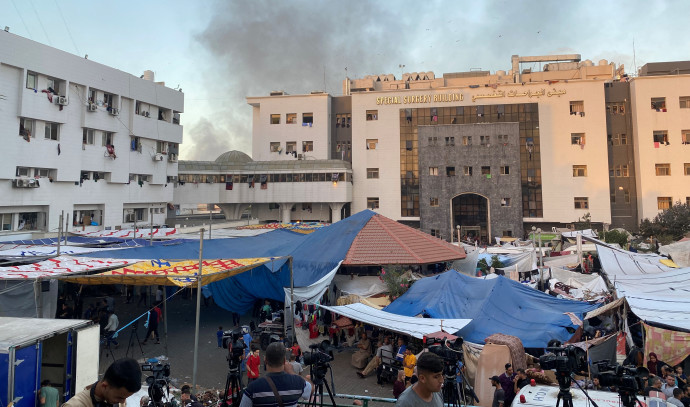By MAYA ZANGER-NADIS NOVEMBER 12, 2023 19:09 Updated: NOVEMBER 12, 2023 21:26
Israeli security forces delivered 300 liters of diesel fuel to Shifa Hospital in Gaza early Sunday morning and later received intelligence indicating that Hamas had intercepted the delivery, according to a Sunday night IDF statement.
…



Half hour of fuel to run every light and machine in the hospital. For critical care and high priority only its several days worth of fuel, to say nothing of how Hamas proved the IDFs point by plundering it and doing nothing for the hospital
I think the overall point that could be made is not about how useful the help is on an absolute basis, but rather how petty it is compared to the devastation that Palestinians have been subjected to for decades, regardless of the presence of terrorist activity.
The overall injustice that Israel and the IDF represents over the whole timeline is staggering. Pogroms, massacres, bulldozing homes, murder of peaceful protestors, monetary contributions to Hamas, apartheid style laws, and not to mention the now extremely prejudiced bombing of Gaza where they are cut off from resources, and cannot even freely evacuate.
Israel has historically, and now quite directly, placed the Palestinian people into an absolute meat grinder. In the context of this, sending fuel to a hospital is clearly bad faith, even if it was guaranteed to last a week instead of a day.
You can either turn the generator on or leave it off.
As someone who has worked (and sometimes still does work) in hospitals, this is not at all how it works. Critical systems have priority, and furthermore have UPS built in. This means that even half an hour of power to the hospital could allow these devices to operate for far longer.